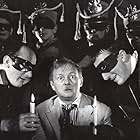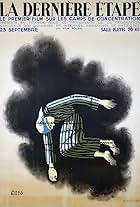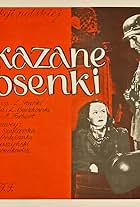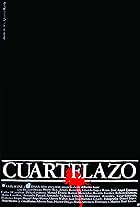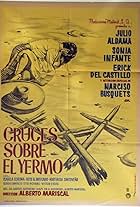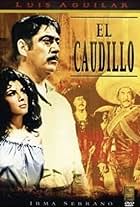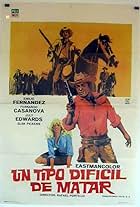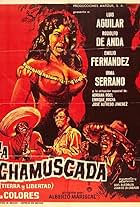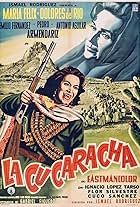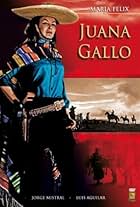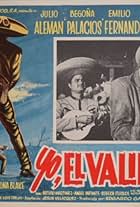IMDb-BEWERTUNG
7,3/10
271
IHRE BEWERTUNG
Füge eine Handlung in deiner Sprache hinzuThe story of Polish and Jewish families living side by side in one Warsaw street. Everything changes once and for all with the Nazi invasion.The story of Polish and Jewish families living side by side in one Warsaw street. Everything changes once and for all with the Nazi invasion.The story of Polish and Jewish families living side by side in one Warsaw street. Everything changes once and for all with the Nazi invasion.
- Auszeichnungen
- 1 Nominierung insgesamt
Fotos
Eugeniusz Kruk
- Fredek Kusmirak
- (as E. Kruk)
Jerzy Zlotnicki
- David Libermann
- (as Jurek Zlotnicki)
Dionizy Ilczenko
- Wladek Wojtan
- (as D. Ilczenko)
Justyna Kreczmar
- Wanda Kusmirakówna
- (as J. Karpinska)
Irena Renardówna
- Jewish Woman
- (as Irena Renard)
Halina Raciecka
- Jewish Woman
- (as H. Raciecka)
Handlung
WUSSTEST DU SCHON:
- WissenswertesThe film was banned in Poland as it depicted Jews, rather than communists, as the heroes of anti-German struggle.
- Alternative VersionenThere is an Italian DVD edition of this movie, distributed by DNA Srl. The movie was re-edited with the contribution of the film history scholar Riccardo Cusin. This version is also available in streaming on some platforms.
- VerbindungenFeatured in Fejezetek a film történetéböl: A lengyel film (1990)
Ausgewählte Rezension
Today is the day I finally got to see one of the best Polish post-war movies. I never saw this movie before although I was born in Poland where I watched most of the Polish-made war movies and listened to stories of my parents about their childhood during the war. Ulica Graniczna (The Border Street) is a visionary work. It is as true and real as it ever gets. It is a non-biased observation of the war-time Warsaw as seen through the eyes of children from families of Polish, German and Jewish heritage. The main theme spreads around a dozen of interlocking dramatic conflicts being resolved gradually with the coming of an imminent tragedy. No other movie that I know of shows a better portrayal of such a difficult and sometimes controversial subjects. There are also themes bordering on a historical documentary, romantic adventure, comedy, performing arts, spirituality, and even a touch of science fiction. The movie was made just two years after the Western World celebrated the end of war, but for many in Poland the war hasn't ended yet. The wounds were fresh, and the memories ever so painful, and the future still uncertain. Seems like there was no need for big production sets, just to pick up a camera and start rolling in the vicinity of the Border Street. Nevertheless, the camera's work is executed in a perfect unity with acting, narration, music and special effects. The languages get mixed up with no overdubbing, but it only makes the movie more realistic. I believe this movie was made by Aleksander Ford at the exact time and place in history where the director/producer was allowed to utilize all available resources to conceptualize his vision. No political or religious views affect the movie's intellectual content but both politics and religion are present in most of the scenes. The story is contained within just a few years and it depicts the lives of just a few ordinary people who found themselves in a very extraordinary circumstances. The people come from different cultural backgrounds but remain bound by the geographical location. They are mostly children but also adults and the family elders. They are all unexpectedly forced to make some very difficult choices. Many times their choice lies between the death of a senseless hero and the self-preservation of a smart survivor. The movie carries a hidden message worth digging out. It is the undercurrent of the story and it culminates in a very realistic-looking scenes (original footage?) from the 1943 uprising in the Warsaw Ghetto. The message comes out the strongest through the varied pictures of human suffering: physical and emotional. To me that message sounds like nothing pitiful, but it brings a reassurance of peace, truth, and coming justice (or so I felt while listening to the final words of Dziadek Liberman.) I think this masterpiece really deserves a full 10 points, at least from my viewpoint.
Hilfreich•111
- lesblachut
- 29. Mai 2012
- Permalink
Top-Auswahl
Melde dich zum Bewerten an und greife auf die Watchlist für personalisierte Empfehlungen zu.
Details
- Laufzeit1 Stunde 55 Minuten
- Farbe
- Sound-Mix
- Seitenverhältnis
- 1.37 : 1
Zu dieser Seite beitragen
Bearbeitung vorschlagen oder fehlenden Inhalt hinzufügen

Oberste Lücke
By what name was Die Grenzstraße (1948) officially released in India in English?
Antwort







